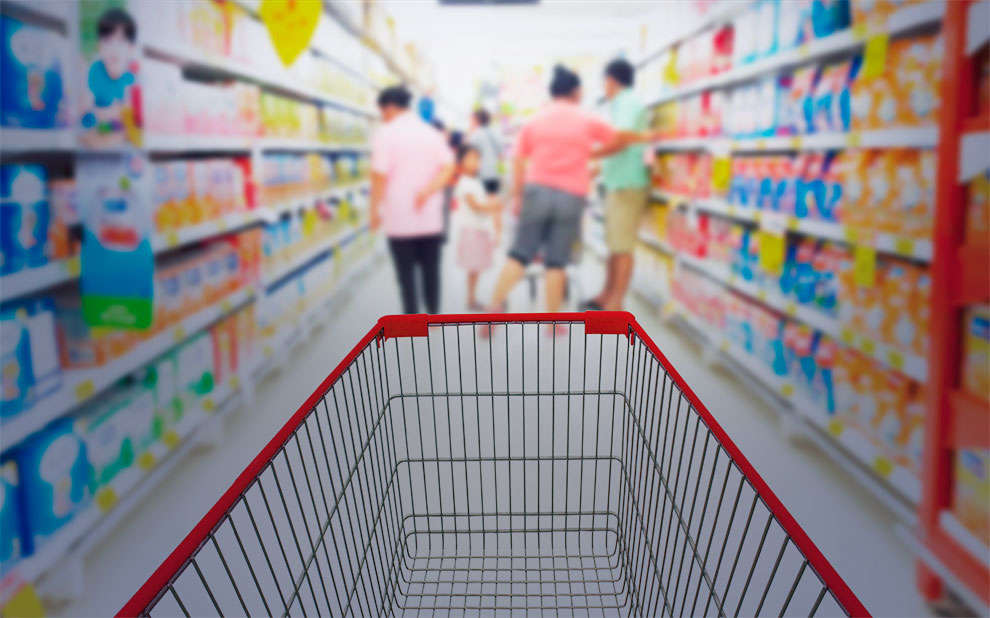Inflation entered the inflation target range in March this year when the IPCA pointed to an annualized variation of 4.65% in prices.
The IBGE (Brazilian Institute of Geography and Statistics) announced last Friday (12) that the IPCA reached 4.18% in April in the accumulated over 12 months.
According to XP, inflation will also be within the target range in May and June.
The inflation target is defined by the CMN, which has two members from the government and one from the Central Bank.
This year’s target is 3.25%, with a tolerance interval of 1.5 percentage points. The floor is 1.75%, and the ceiling is 4.75%.

XP Investimentos expects prices to accelerate in the second half of the year and that the IPCA will close the year at 6.25%. This means that the Central Bank will miss the target for the third year in a row.
The monetary authority, led by Roberto Campos Neto, missed the target in 2021, mainly because of the inflationary effects of the Covid-19 pandemic. And in 2022, due to the increased commodity prices with the war in Ukraine.
In 2023, the Central Bank will miss the target again and must issue a letter explaining the reasons.
However, the monetary authority is managing to slow the pace of price increases over the past few years (read the infographic below).
The agency admits that there is an 83% chance of exceeding this year’s targets.
The IPCA reached 12.13% in the annualized until April 2022. The then president Jair Bolsonaro (PL) launched a package of measures to contain the advance of prices.
He reduced taxes on several products, such as fuel, energy, and telecommunications.
The maneuver of the then president, with the support of Congress, made Brazil register deflation (price drops) for 3 consecutive months in 2022: July (-0.68%), August (-0.36%), and September (-0.29%).
Unlike last year, the projections show that these same months will increase prices (inflation) in 2023.
Economist Alexandre Maluf, from XP, says that this fall in the accumulated in 12 months in the middle of this year is the result of the comparison with the deflated months in 2022: “All this ended up pushing inflation in this period from April to June very low”.
In XP’s evaluation, the IPCA is with a downward bias and may close below 6.25% in 2023, driven by the fall of the real and the drop in oil prices. For now, the entity is not considering possible cuts in gasoline prices, which could pull the index down.
For 2024, XP expects inflation of 5.0%. The number is above the tolerance ceiling stipulated by the CMN for next year of 4.5%. The center of the goal for 2024 is 3%, with a floor of 1.5%.
In communications to investors, the Central Bank has said it will maintain monetary policy to meet these targets.
The tool used is the Selic; the basic interest rate is currently at 13.75% per year.
As the horizon for next year is still inflation out of the target, the monetary authority is likely to keep interest rates at a high level in the coming months.
These high-interest rates have bothered the government of Luiz Inácio Lula da Silva (PT) because a high Selic removes money from the real economy and, consequently, weakens economic growth.
Economic team members have said they may change the inflation target next year to facilitate a reduction in interest rates in the second half of the year.
Since the government has two seats on the CMN, one held by Minister Fernando Haddad (Finance) and one by Minister Simone Tebet (Planning), Lula can change the targets. The other seat is held by Roberto Campos Neto (Central Bank).
In the view of financial institutions, the risk of this maneuver is that an increase in the target will lead to rising inflation projections for the coming years.
On the other hand, a higher target may allow a reduction in interest rates in the second semester. This is what the government’s team expects.
With information from Poder360
News Brazil, English news Brazil, economic news Brazil, Lula news, inflation Brazil,

